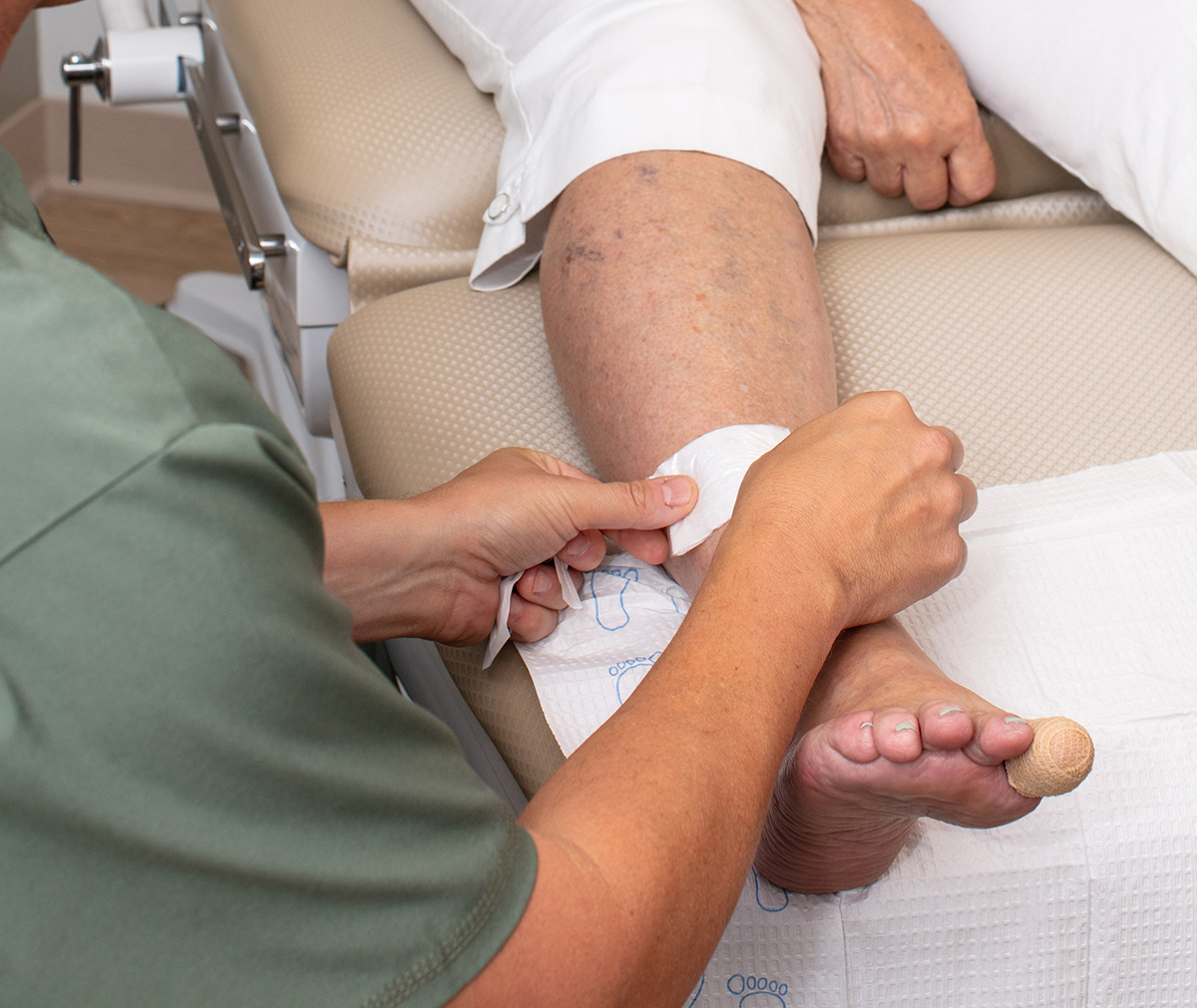April is National Foot Awareness Month, and why not a better time for Dr. Barnett to discuss often preventable overlooked problems millions of people struggle with. We will throw out several googleable terms that are common searches and debunk misinformation and outline ways to prevent these issues or resolve them quickly. Part II is all about the Diabetes Effect on Feet.
1.6 million Americans have a diabetic foot ulcer, and 20% of those wounds can turn into amputations. Amputations lead to more stress and a higher mortality rate. These ulcers are not only curable if diagnosed early but can even be prevented.
There are several factors to address when looking at the diabetic foot. Diabetes is a risk factor for sores and amputations, not a direct cause. Elevated blood sugar can cause blood vessels and nerves to get damaged. These factors also increase the risk of sores not healing. No one, diabetic or not, has perfect foot structure. Hammertoes, bunions, prominent bones, and thin vs wide feet can all be risk factors of calluses and pressure points. Areas of pressure or injury can result in a new wound. Poor blood flow and loss of feeling can delay detection of a sore and delay the body’s ability to heal. Generally, sores do not start out infected, but can get contaminated if not treated with antiseptic early on. Bacteria love to feed on sugar, therefore a cut that gets infected can easily spread and infect the bones, and even the heart.

Early Detection and Aggressive Treatment
If a wound is detected, aggressive treatment, after proper diagnosis, is key to saving a limb. Dr. Barnett will culture the wound, take x rays to make sure no deep tissue involvement, and start a protocol to heal the sore. Offloading with boots, custom inserts, and braces will stop pressure from aggravating the ulcer. Sharp trimming of the sore after proper numbing will help the wound start to heal, and aggressive therapy like medical grade honey, BlastX, and oral antibiotics will help prevent infection and allow natural healing
Safe Surgery to Prevent Major Surgery
If a wound does not heal in a timely fashion, typically for a month or less, Dr. Barnett will generally be more aggressive to prevent worsening issues. Dr. Barnett will often take someone to day surgery, under local or limited sedation, and remove any bad tissue hindering healing. Dr. Barnett will often utilize products like wound vacs or replacement tissue to help cover the wound. Minimal bone cutting and tissue releases can also help offload a wound to prevent recurrence.

Skin Substitutes
There are animal derived skin replacement therapies that help heal chronic wounds, from fish skin, pig heart, and sheep lining. These grafts are sterilized and preserved to be ready to be used in the office. These grafts stimulate the body’s ability to start healing. Human tissue can also be used, from skin from one’s thigh, or skin from a donor, such as back tissue, umbilical grafts, and placental derived products, that rapidly stimulate cell growth and healing the hardest to treat wounds. These grafts can be used instead of going to surgery and can heal wounds that simply no other treatment can accomplish.
The longer a wound exists the harder it is to treat and the longer a wound sticks around, the greater the chance of infection or amputation. Dr. Barnett makes it a priority to see wounds in the clinic, so on the same day appointments are always available, and house calls are possible to assess and treat these fragile wounds quickly. Don’t fear coming in, the faster a wound is assessed, the faster the wound is cured.



